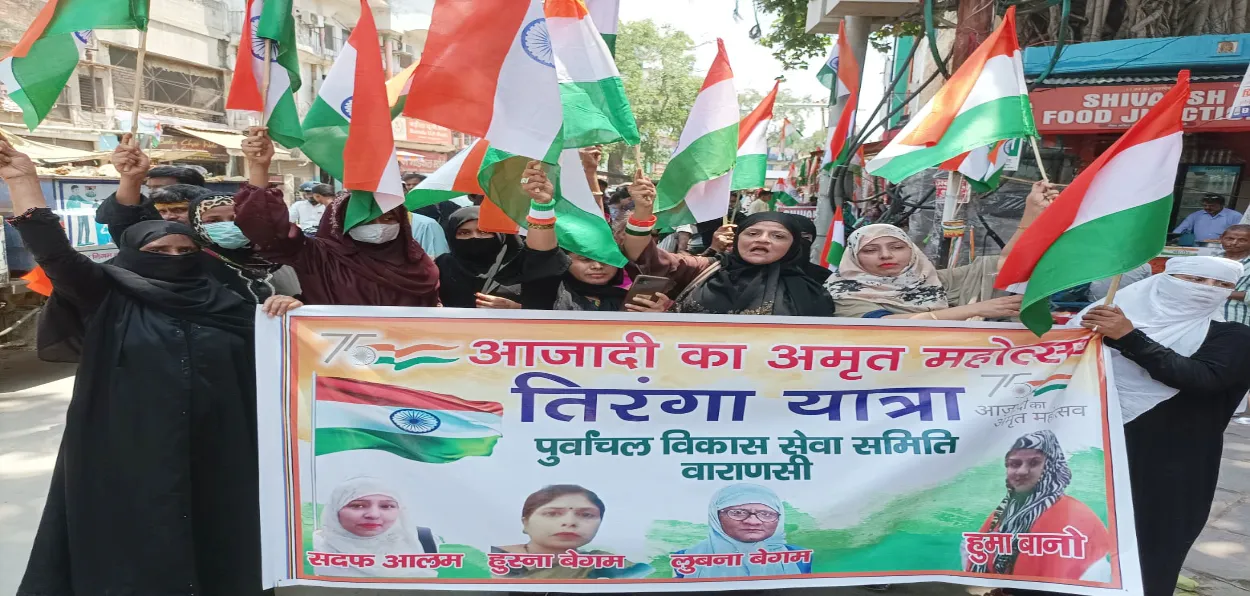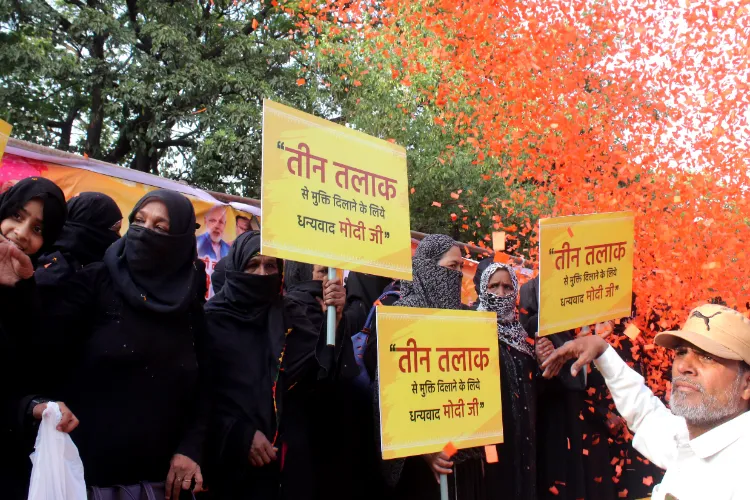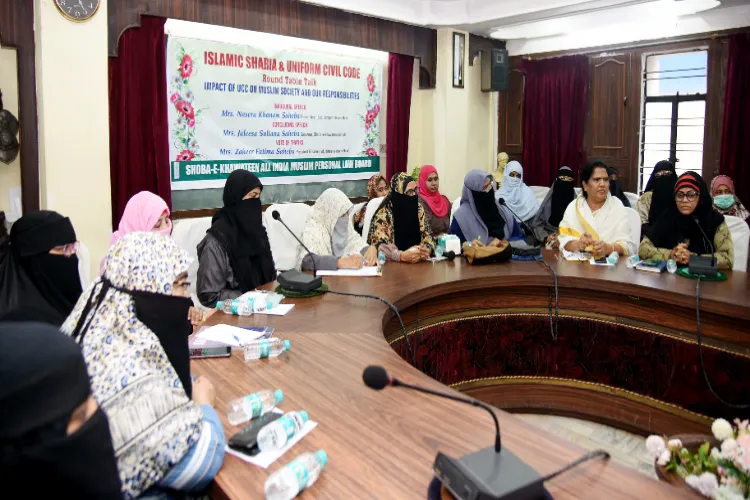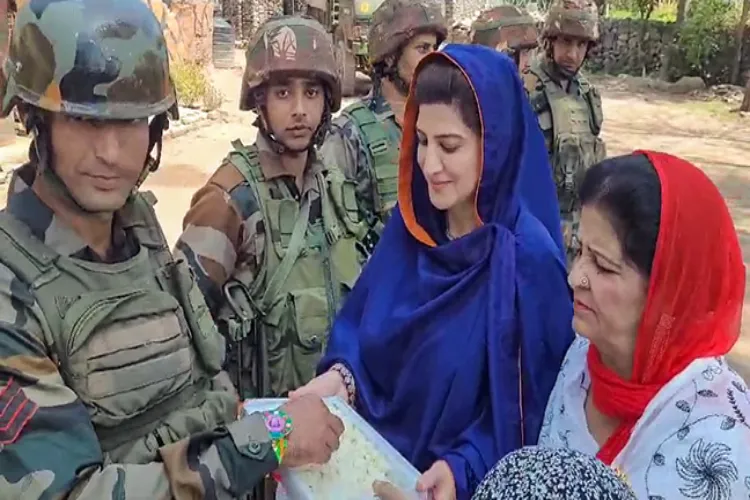
Hafeez Ur Rahman
During the recent International Conference on Women in Islam" of the Organization of Islamic Cooperation countries in Jeddah, I was a bit shocked to see no Muslim woman was present from India. This is bizarre since India has the second-largest Muslim population in the world. Many other countries from Asia like Bangladesh and even Morocco had women representatives. This pointed out the grim reality of the Indian Muslims - religious leaders have subjugated Muslim women with their harsh laws and kept them in confined spaces.
Muslim-centric religious organizations and institutions have remained devoid of female voices and perspectives. It raises the question of whether society believes that women are not competent, even when they have become scientists like Khushboo Mirza, a scientist with ISRO who played a role in the Chandrayaan-3, Shehnaz Hussain, business tycoon and founder of the Shahnaz Husain Group in India, Sania Mirza, Tennis star and many other amazing Indian Muslim women.
Indian history has accounts of powerful Muslim women - queens, rulers, princesses, literary giants, freedom fighters, educators, sportswomen, scholars, actors, and writers - who contributed to the making of modern India.
Despite Islam emphasizing the importance of women's independence and empowerment, the prevailing orthodoxy has limited their opportunities and stifled their potential to serve as theologians, scholars, or Islamic experts.
In Islam, there is no difference between men and women as far as their relationship with Allah is concerned, as both are promised the same reward for good conduct and the same punishment for evil conduct. The Qur'an says: And for women rights over men are similar to those of men over women. (2:226)
 Muslim women thanking PM Modi for the law to abolish practice of triple talaq
Muslim women thanking PM Modi for the law to abolish practice of triple talaq
The Qur'an, in addressing the believers, often uses the term, 'believing men and women' to emphasize the equality of men and women regarding their respective duties, rights, virtues, and merits.
Throughout Islamic history, women have played pivotal roles in various aspects of society, dating back to the time of Prophet Mohammed. Islamic teachings never intended to confine women to the role of subservient beings, and the Prophet's wives, such as Hazrat Khadija, Hazrat Ayisha, and Hazrat Umme Salma, were experts in different fields. The legacy continued, with figures like Hazrat Fatima and Zainab, and extended to renowned personalities like the Sufi mystic Rabia Basri and Zubaida, the wife of a ruler in Baghdad.
In the Indian subcontinent, names like Razia Sultana, ruler of the Delhi Sultanate also the first female Muslim ruler of the subcontinent, and the only female Muslim ruler of Delhi; Noor Jahan Begum, wife and chief consort of the Mughal emperor Jahangir, the real power behind the emperor who made the major decisions; Jahan Ara Begum, the Mughal princess and later the Padshah Begum of the Mughal Empire; Fatima Sheikh, Indian Muslim educator and social reformer and many others stand as testaments to the exceptional Muslim women who made significant contributions in various fields, from rulership to academics.
During the freedom movement, Begum Hazrat Mahal, Abadi Begum, Bibi Amatus Salam, Hajra Begum, and Begum Anis Kidwai were widely recognized and admired by the Muslim community. However, after Independence, a regressive mindset curtailed the opportunities for women, relegating them to the role of homemakers with limited access to education. The Supreme Court recently pointed out that women are subject to a patriarchal mindset that regards them as primary caregivers and homemakers.
 Meeting of the Women's All Indian Muslim personal law board in progress at Lucknow
Meeting of the Women's All Indian Muslim personal law board in progress at Lucknow
Personal laws have become embroiled in controversies surrounding gender equality, particularly in India, where each community adheres to its own distinct set of personal laws. Within this context, Muslim Personal Law has often been criticized for perpetuating gender inequality. Gender inequality in India largely arises from deeply ingrained cultural patriarchy without any genuine religious basis, and such inequalities are further exacerbated by discriminatory legal provisions. The unfortunate status of Muslim women in India results from a lack of understanding of Usul-ul-fiqh, which leads to a failure to assert their rights as guaranteed by Islamic principles. In reality, limited awareness of usul-ul-fiqh perpetuates the prevalent but mistaken belief that Muslim personal law oppresses women when, in fact, it grants them equal rights.
Certain Ulema advocated for the education of boys in madrasas but neglected girls, promoting the false narrative that modern and co-education were impermissible in Islam. Some even claimed that modern education was against Islamic values or immodest for Muslim women. Numerous reports reveal that Muslim women in India are among the least educated. Traditional Ulema play a significant role in this, as they often emphasize that women's roles should be confined to their homes, prioritizing their responsibilities as mothers and wives. Their views on women's participation in the public sphere are unclear and often contradictory. Some believe it is not permitted in Islam due to moral reasons, while others argue it would lead to chaos. They claim that earlier periods were more virtuous, and Western culture has eroded the faith and identity. Some traditional Ulema advocate for providing Muslim girls with religious education exclusively.
In the face of these challenges, numerous Muslim women in India have succeeded in establishing their independent identities and making substantial contributions to the nation and the world. However, it is disheartening that no Muslim organization or Islamic scholars have actively supported their achievements. Muslim women were so overlooked that in January 2011, the Bharatiya Muslim Mahila Andolan (BMMA), also known as the 'Indian Muslim Women's Movement,' rose as an independent, secular, and rights-focused mass organization led by Zakia Soman with a primary mission to advocate for the citizenship rights of Muslim women in India.
Despite Islamic principles that allow and promote women's equal participation, Indian society, particularly religious organizations, has failed to nurture female leadership and provide them the opportunities they deserve. While there have been efforts to reform and reinterpret Islamic teachings to promote gender equality, these initiatives have not gained widespread acceptance among the religious leadership. Many Islamic leaders in India adhere to conservative and patriarchal interpretations of Islamic texts. These interpretations often restrict women's roles to the domestic sphere and limit their access to education and employment.
The cultural practices in India often intersect with religious beliefs. Some Islamic leaders may not be fully aware of the importance of gender equality in Islam, or they may not prioritize it within their teachings and leadership.

Muslim women tying rakhi on the wrists of Security force personnel
This is why India has not seen the emergence of female Islamic scholars or scholars like Henda Ayari, a French writer, feminist, and secular activist. Previously a Salafi Muslim, in 2015 she founded the association Libératrices, which helps defend women and prevent radicalization. There we have Asma Lamrabet, a Moroccan doctor, Islamic activist, scholar, and author; Fatima Mernissi from Morocco, a great writer and sociologist and Dr. Nahla Al Saeedi from Egypt.
It is somewhat saddening that Indian Muslim women are lagging here. According to UNESCO, the literacy rate for women in India stands at 62.8%. Among religious groups, Muslims in India have one of the lowest literacy rates. It took a century for institutions like Aligarh Muslim University (AMU), Jamia Millia Islamia, and Hamdard University to appoint their first female Vice Chancellor, which occurred just five years ago at Jamia Millia Islamia.
The women in ancient India held very powerful positions, in fact, far more superior position to the men of the time and Shakti, a feminine term means “power” and “strength”.
An ancient Chinese proverb says, “Women Hold up Half the Sky”.
The famous Sufi Muslim poet Rumi (Jalāl ad-Dīn Muhammad Balkhī) who saw Divinity reflection in women wrote, “A Woman is a ray of God. She is not that earthly beloved: she is creative, not created.”
Give a woman a platform to express herself and be creative, and she will transform her area and the world!
ALSO READ: Why praying for peace of Jerusalem equals praying for peace in Palestine and Israel
Islamic-centric institutions and organizations such as Deoband, Bareilly, Nadwa Islamic seminaries, Jamiat Ulma-e-Hind, Muslim Personal Law Board, and Jamaat-e-Islami Hind need to proactively address the question of why India has not been able to produce female Islamic scholars on par with their male counterparts. These entities must create an environment that fosters the development of Muslim women leadership in the field of Islamic scholarship
Dr. Hafeez Ur Rahman, Author, Islamic Scholar, and Convenor of the Khusro Foundation, New Delhi
